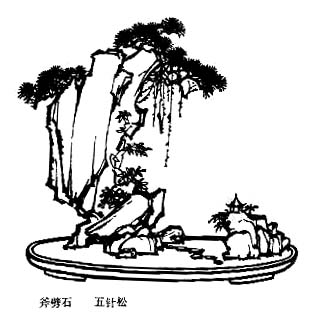Shi Jing 
 – Le Canon des Poèmes
– Le Canon des Poèmes
Le plus ancien recueil connu de poésie chinoise, plus de trois cents chansons, odes et hymnes. Tr. Legge (en) et Granet (fr, incomplète).
Shijing I. 2. (17)
(le garçon) — Les chemins ont de la rosée :
Pourquoi donc ni matin ni soir ?
(la fille) — Les chemins ont trop de rosée !
(le garçon) — Qui dit qu'un moineau est sans bec ?
Comment percerait-il mon toit ?
Qui dit que tu es sans mari ?
Comment t'en prendrais-tu à moi ?
(la fille) — Bien que tu t'en prennes à moi,
Le mariage n'est point fait !
(le garçon) — Qui dit, qu'un rat n'a pas de dents ?
Comment percerait-il mon mur ?
Qui dit que tu es sans mari ?
Comment t'en prendrais-tu à moi ?
(la fille) — Bien que tu t'en prennes à moi,
Quand même je ne te suis pas !
Granet XI.
Wet lay the dew on the path : –
Might I not [have walked there] in the early dawn ?
But I said there was [too] much dew on the path.
Who can say the sparrow has no horn ?
How else can it bore through my house ?
Who can say that you did not get me betrothed ?
How else could you have urged on this trial ?
But though you have forced me to trial,
Your ceremonies for betrothal were not sufficient.
Who can say that the rat has no molar teeth ?
How else could it bore through my wall ?
Who can say that you did not get me betrothed ?
How else could you have urged on this trial ?
But though you have forced me to trial,
I will still not follow you.
Legge 17

Le Canon des Poèmes – Shi Jing I. 2. (17) – Chinois off/on – Français/English
Alias Shijing, Shi Jing, Book of Odes, Book of Songs, Classic of Odes, Classic of
Poetry, Livre des Odes, Canon des Poèmes.
Le Canon des Poèmes, Les Entretiens, La Grande Étude, Le Juste Milieu, Les Trois Caractères, Le Livre des Mutations, De la Voie et la Vertu, 300 poèmes Tang, L'Art de la guerre, Trente-six stratagèmes
Bienvenue, aide, notes, introduction, table.
Index – Contact – Haut de page
